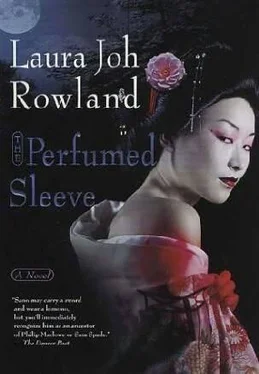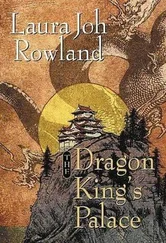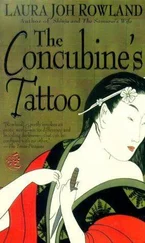“Now I can better understand what you did at the Dragon King’s island,” Sano said.
Hirata derived no satisfaction from seeing his master put in the same position that had led himself to ruin. He didn’t want Sano forced to compromise himself. He counted on Sano to uphold the honor of the samurai class.
“My hands are tied.” But even as Sano admitted defeat, cunning inspiration gleamed in his eyes. “But yours aren’t.”
Hirata felt a sudden resurgence of the hope that he’d thought impossible.
“You’re officially banned from the investigation,” Sano continued. “No one is watching you. You can go places and talk to people that I can’t. I need you to reinvestigate Koheiji and Tamura in the light of what we’ve learned about them. I need to know if they have any connection to Daiemon’s murder. But I can’t do it with Otani and Ibe shadowing me and ready to harm my son if I step out of line. Therefore, I’m ordering you to act on my behalf.”
Joy exhilarated Hirata. Here was a new chance to solve the case and atone for past mistakes. The murder of Daiemon had begotten good fortune as well as bad. Hirata stifled an urge to cheer. Bowing solemnly, he said, “I’ll do my best.”
“Keep your inquiries as discreet as possible,” Sano warned. “Don’t let Otani or Ibe get wise to you.”
“Yes, Sōsakan-sama.” Hirata understood the responsibility that came with his new chance. Now it wasn’t just his life or reputation at risk, but the welfare of his master’s child. “But what if I discover evidence against Tamura or Koheiji-or someone in the factions? That would displease Otani and Ibe.”
“Let’s just solve the crimes and hope that everything somehow turns out all right.”
Hirata saw that Sano didn’t feel much optimism. Neither did Hirata. But he had his new chance. He swore to himself that he wouldn’t blow it.
Business in the theater district was well under way by the time Hirata arrived. Clad in plain garments that obscured his rank and a wide wicker hat that hid his face, he rode down Saru-waka-cho. Drummers in the wooden framework towers called theatergoers to the plays. People laden with quilts to keep them warm filed into the buildings. Gay music and fluttering banners spangled the cold, gray morning. Vendors did a brisk trade in hot tea and roasted chestnuts. But Hirata observed that the crowds seemed thinner than usual, minus the samurai who’d been mobilized for the coming battle between Chamberlain Yanagisawa and Lord Matsudaira. Distant war drums pulsed in counter-rhythm to the drums in the towers. A dangerous energy in the air heightened the urgency of Hirata’s own mission. He dismounted outside the Nakamura-za Theater, secured his horse, bought a ticket, and entered through the door beneath a huge poster of Koheiji.
Inside, the theater was sparsely peopled, the stage empty except for musicians tuning their instruments: The play was late in starting. So much the better, Hirata thought-he could snare Koheiji now instead of waiting out the play. The actor still didn’t strike Hirata as the best suspect, but Sano wanted him reinvestigated, and Hirata and Koheiji had things to settle.
Hirata climbed onto the runway that extended from the stage, between rows of seating compartments, to a curtained door at the side of the room. He pushed through the curtain into a corridor, past actors lining up to go onstage. Walking down the corridor, Hirata peered into rooms where more actors fussed while attendants adjusted their costumes and makeup. Gaudy courtesans and strutting samurai abounded among the cast. Hirata came to the last door along the passage. A man’s breathy grunts and a woman’s moans issued from inside the room. Hirata lifted the curtain that screened the door.
Costumes on wooden stands, a dressing table and mirror, and theatrical props jammed the small space. On a futon in the corner, Koheiji lay, his kimono hiked above his bare buttocks, his trousers fallen around his knees, atop a woman who sprawled nude in a tangle of her long hair and brightly colored robes. He panted while thrusting into her; she bit on a cloth to stifle her moans. Hirata cleared his throat. The lovers’ heads turned toward him, and the lust on their faces turned to dismay. The woman squealed.
“Who are you?” Koheiji demanded, springing to his feet and glaring at Hirata through a mask of white face powder, painted black eyebrows, and rouged cheeks and lips. “How dare you barge in here?”
The woman scrambled into her robes, then ran out the door. Hirata tilted back his hat. “You remember me,” he said. “I’m here for a little talk with you.”
The actor’s face showed alarm as he recognized Hirata. He seemed to decide against arguing with the chief retainer of the shogun’s sōsakan-sama. Nodding sullenly, he straightened his clothes. “All right, but please be quick.” He looked in the mirror, checking his makeup, then hung two wooden swords at his waist. “I have to go onstage in a few moments.” Sudden anxiety colored his expression as he faced Hirata. “Hey-I hope you won’t tell anyone what you just saw?”
“Why shouldn’t I?” Hirata said.
“She’s the wife of the theater owner,” Koheiji said. “If he found out about us, he would fire me.”
The explanation sounded credible, but Hirata heard a tinny, discordant note in Koheiji’s voice. Instinct told Hirata who the actor was really afraid would learn about the affair, and the reason why. Hirata tucked the knowledge into the back of his mind for future use. “I might be persuaded to keep quiet,” he said, “if you tell me what you were doing the night Senior Elder Makino died.”
Koheiji’s eyes gleamed, wary and sharp, from within the mask of theatrical makeup. He leaned against the wall near the door and folded his arms. “I already told you, when we talked the day before yesterday.”
“You told me at least one lie then,” said Hirata. “You said there was no sex between you and Makino. Did you forget to mention the sex shows that he hired you to perform for him? Or do you think they don’t count?”
The actor cursed under his breath. “There’s no privacy in this town. Everybody talks about everybody else. I should have known you’d find out about my little business.”
“Then why did you try to hide it from me?”
“I thought it would make me look guilty.”
“You look even guiltier because you lied.”
“So what if I did?” Koheiji pushed himself away from the wall, defensive and belligerent now. “I told the truth when I said I didn’t kill Makino. And so what if I put on sex shows for him? That’s not a crime.”
“What about when you almost beat a judicial councilor to death during one of your shows?” Hirata said. “That was a crime.”
Alarm flashed in Koheiji’s eyes, but he quickly blinked it away. He said, “That never happened,” and slouched against the door with carefree nonchalance. But his nonchalance was obvious fakery. He was, as Hirata recalled the watchdog Ibe saying, not an especially good actor. “Who told you it did?”
Hirata didn’t answer. He waited, knowing that people would often spill compromising facts just because they can’t tolerate silence when under pressure. From the theater came the smack of wooden swords clashing and voices shouting in a duel scene.
“It must have been that pitiful, second-rate actor, Ebisuya. He was always jealous of me. He’ll say anything to get me in trouble.” The need to excuse himself superseded wisdom in Koheiji. He blurted, “Things got out of control. I didn’t hurt the judicial councilor that much. He lived.”
“Senior Elder Makino didn’t,” Hirata said. “Did things get out of control with him, too? Did you beat him to death during one of your sex shows?”
Читать дальше












